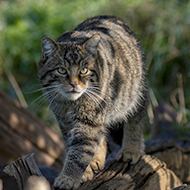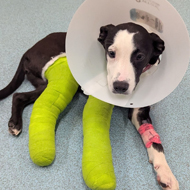The birds were found in a drain by an HGV driver.
Three wigeons have been rehabilitated and released by Scottish SPCA after they were rescued by an HGV driver.
The birds, which are rarely seen in the centre, were found by the driver in a layby by the A9 on 1 June. The driver kept them warm overnight in their lorry, before passing them to an animal rescue officer the next day.
They were then brought to the National Rescue Centre to be rehabilitated.
Wigeons are a common migratory bird in central and northern Scotland and northern England during winter, as they often visit from Iceland, Scandinavia and Russia to breed.
However Scotland only sees 200 breeding pairs that stay year round, so the arrival of the wigeons at the centre was rare.
When the wigeons, who have been named Fancy, Wood and Feral, arrived at the rescue centre they each weighed only 25g.
They refused to eat a typical diet, and so had a special food made for them. The birds spent a month in the centre’s indoor pools, before they were moved to the paddocks until they were ready to be released.
When the wigeons were released, they weighed 650g and were fully fledged.
Scottish SPCA National Wildlife Rescue Centre manager Chris Hogsden said: “The release site was Findhorn, where thousands of migratory wigeons travel to Scandinavia at the start of September, so they'll have lots of company soon.
“Knowing a wild animal is doing well after being in our care is the most rewarding aspect of our work at the National Wildlife Rescue Centre.”
Image (C) Shutterstock







